Expanded Worker Training Now Reaching Dozens in Taiwan’s Distant Water Fisheries
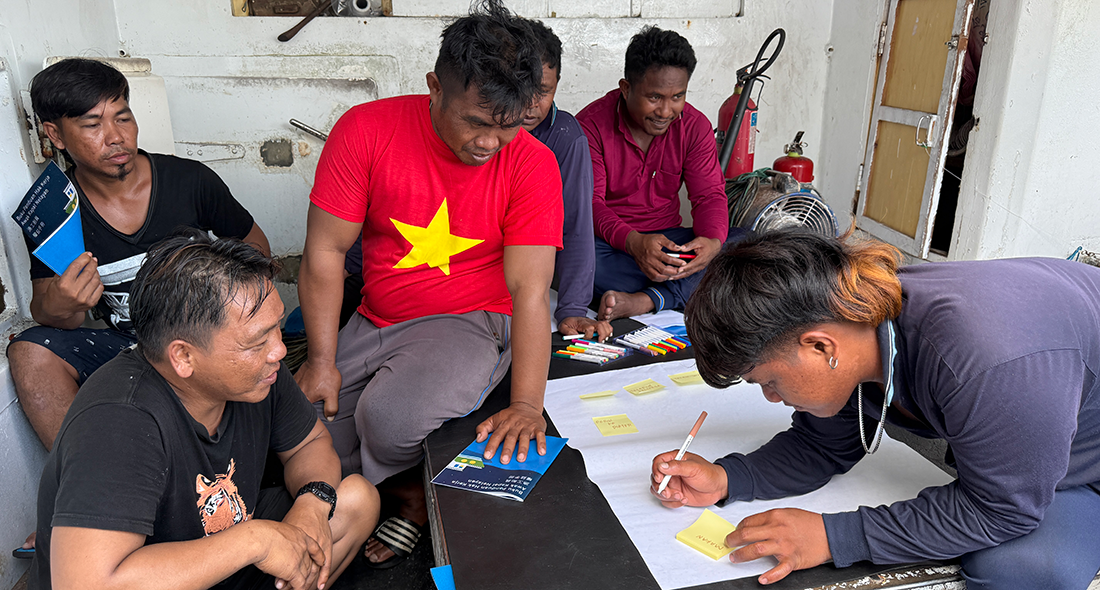
Migrant workers aboard a Taiwanese longline tuna fishing vessel engage in a training session using materials developed by Ocean Outcomes and One-Forty.
Last year, we launched a pioneering collaboration with One-Forty to strengthen education and training opportunities for migrant workers in Taiwan’s distant water fisheries.
This partnership — the first of its kind in Taiwan — brought together fisheries expertise and migrant worker education specialists to build a platform for collaboration, exchange, and inclusion. Over the past year we have provided migrant workers with education and vocational training, worked with them to develop work-led curriculums for further migrant work training and established tools and processes that can be integrated into broader Fishery Improvement Project (FIP) work in Taiwan and beyond.
The below images and their captions highlight how this collaborative effort has created meaningful change for those working in Taiwan’s distant water fisheries — helping to foster safer, more informed, and more resilient working environments aboard Taiwanese vessels.
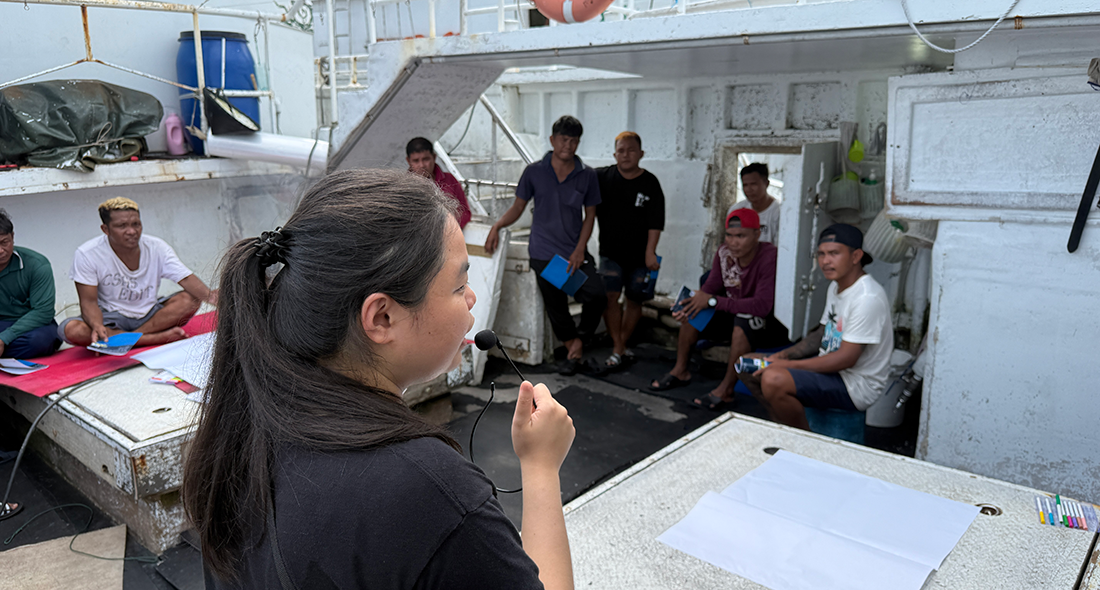 At the onset of the project, One-Forty’s teachers spoke directly with the crew about their existing knowledge of labor issues and their preferences for training. These conversations revealed strong demand for safety and first aid modules, as well as information related to equitable access to Wi-Fi — topics that were integrated into training modules and future training.
At the onset of the project, One-Forty’s teachers spoke directly with the crew about their existing knowledge of labor issues and their preferences for training. These conversations revealed strong demand for safety and first aid modules, as well as information related to equitable access to Wi-Fi — topics that were integrated into training modules and future training.
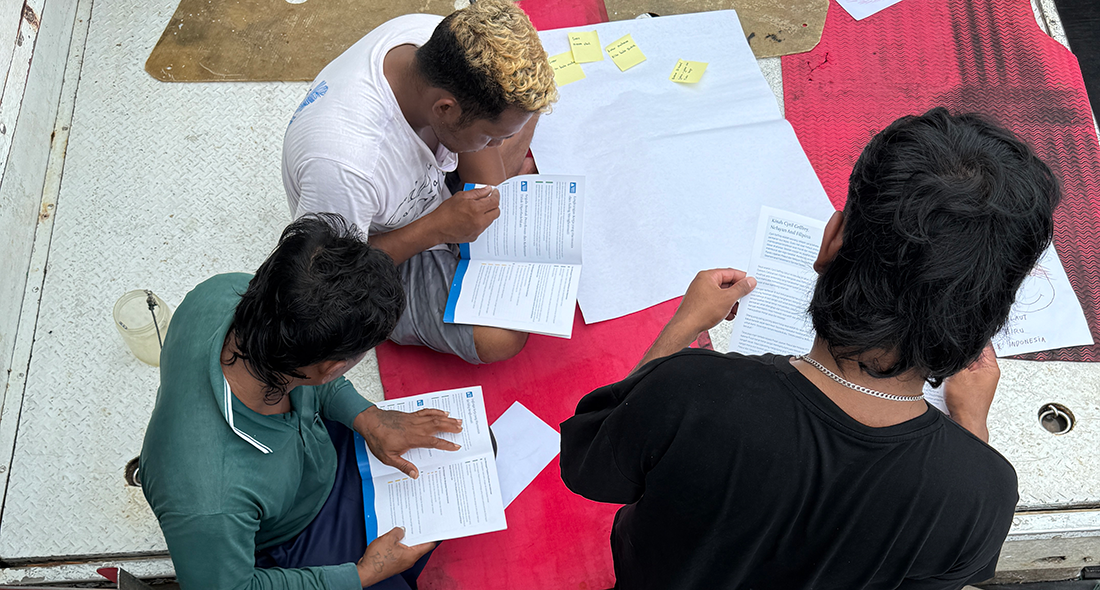 Ocean Outcomes and One Forty finalized a training program and curriculum in January 2025 which took into account direct input from migrant crew members. This worker-led approach ensured that the curriculum reflected the lived experiences, priorities, and interests of crew members.
Ocean Outcomes and One Forty finalized a training program and curriculum in January 2025 which took into account direct input from migrant crew members. This worker-led approach ensured that the curriculum reflected the lived experiences, priorities, and interests of crew members.
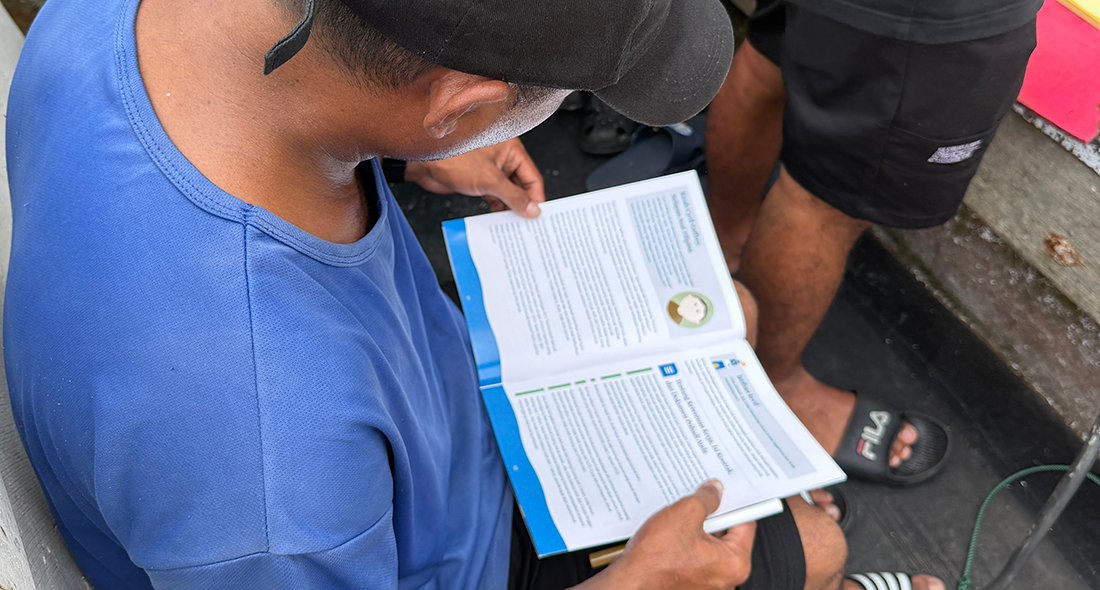 By mid-2025, training sessions had been conducted on four different longline vessels, reaching 53 workers. Two of the vessels participating in the trainings are part of the Ocean Outcomes led Taiwan Tuna Longline Association (TTLA) Fishery Improvement (FIP) Project, which has a mandate to consider and address social requirements in its work.
By mid-2025, training sessions had been conducted on four different longline vessels, reaching 53 workers. Two of the vessels participating in the trainings are part of the Ocean Outcomes led Taiwan Tuna Longline Association (TTLA) Fishery Improvement (FIP) Project, which has a mandate to consider and address social requirements in its work.
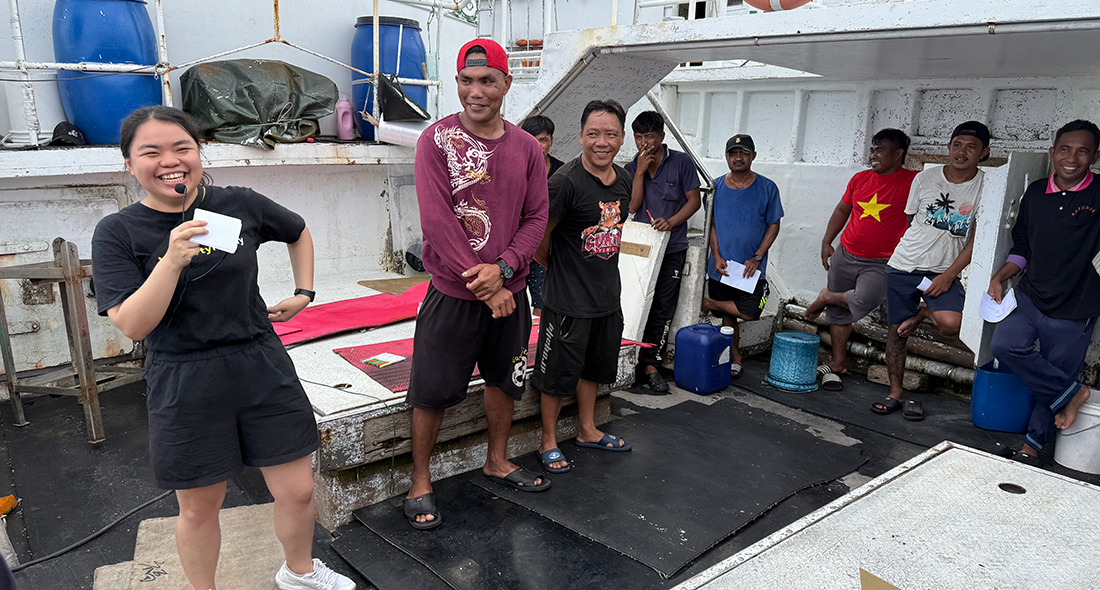 Two of the initial training sessions for 35 Indonesian and Filipino workers focused on Mandarin language skills and basic labor rights. Two additional sessions for 17 Indonesian workers focused on labor rights, grievance mechanisms and language skills. One-Forty’s educators created activities to make sessions interactive and enjoyable, helping workers engage meaningfully with complex issues while fostering a sense of fun through learning.
Two of the initial training sessions for 35 Indonesian and Filipino workers focused on Mandarin language skills and basic labor rights. Two additional sessions for 17 Indonesian workers focused on labor rights, grievance mechanisms and language skills. One-Forty’s educators created activities to make sessions interactive and enjoyable, helping workers engage meaningfully with complex issues while fostering a sense of fun through learning.
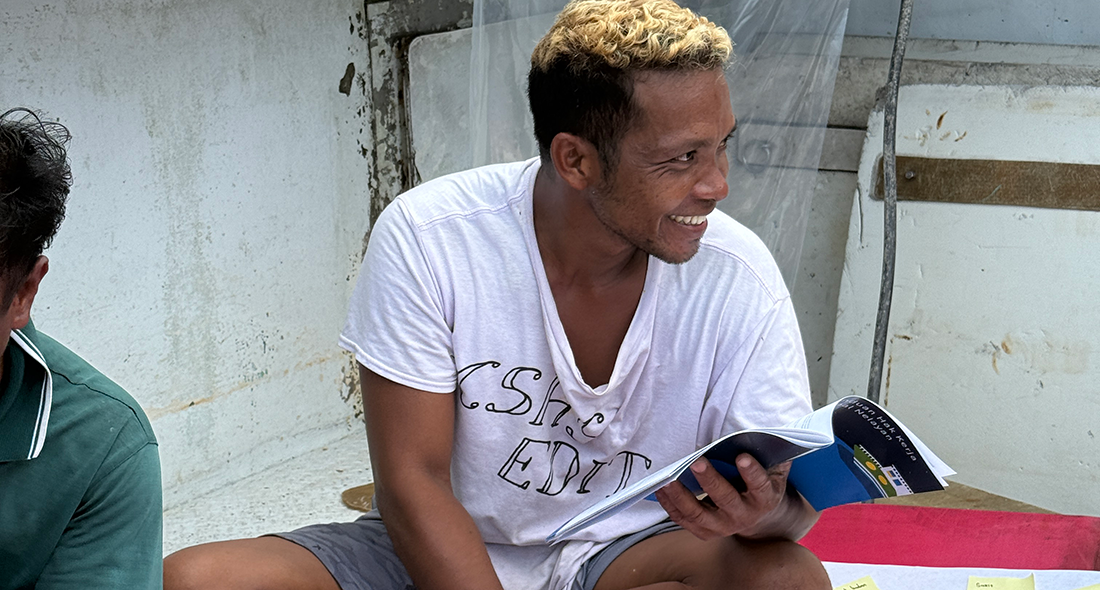 In addition to in-person training, One-Forty short videos such as this one to promote the handbook and its learnings, and other online materials that could be accessed by crew so that they could continue learning.
In addition to in-person training, One-Forty short videos such as this one to promote the handbook and its learnings, and other online materials that could be accessed by crew so that they could continue learning.
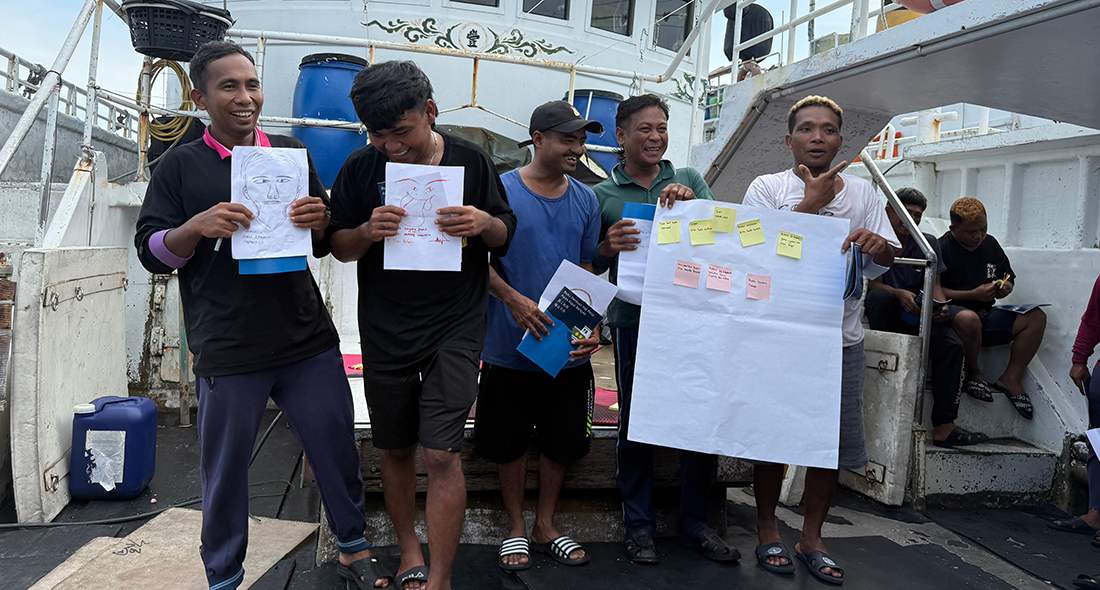 Work in fisheries is dynamic and often shaped by vessel schedules or short-notice opportunities. Training was conducted while vessels docked in port and required the project teams at Ocean Outcomes and One-Forty to work closely on planning and preparation, clarity on roles, and ongoing dialogue when implementing future training initiatives.
Work in fisheries is dynamic and often shaped by vessel schedules or short-notice opportunities. Training was conducted while vessels docked in port and required the project teams at Ocean Outcomes and One-Forty to work closely on planning and preparation, clarity on roles, and ongoing dialogue when implementing future training initiatives.
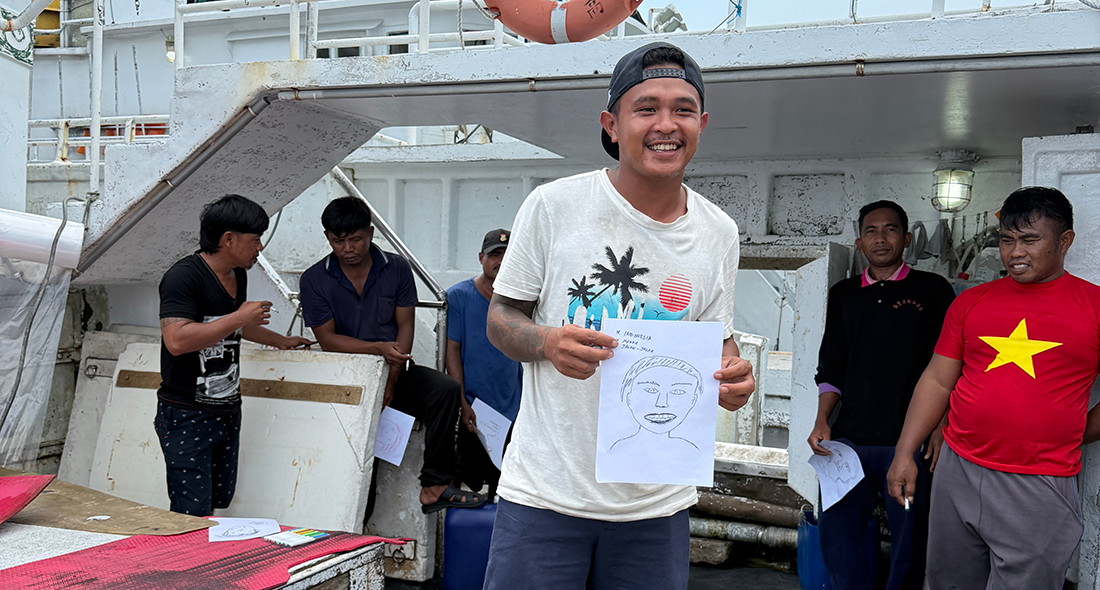 Given the success of the work to date, we are seeking to expand training to cover other Taiwanese vessels participating in FIPs, customizing training curriculum to focus on both crew and captain needs, and expanding availability of sessions to other ports and regions. This would potentially include South Korea, where migrant labor makes up the vast majority of distant water fishery crew.
Given the success of the work to date, we are seeking to expand training to cover other Taiwanese vessels participating in FIPs, customizing training curriculum to focus on both crew and captain needs, and expanding availability of sessions to other ports and regions. This would potentially include South Korea, where migrant labor makes up the vast majority of distant water fishery crew.
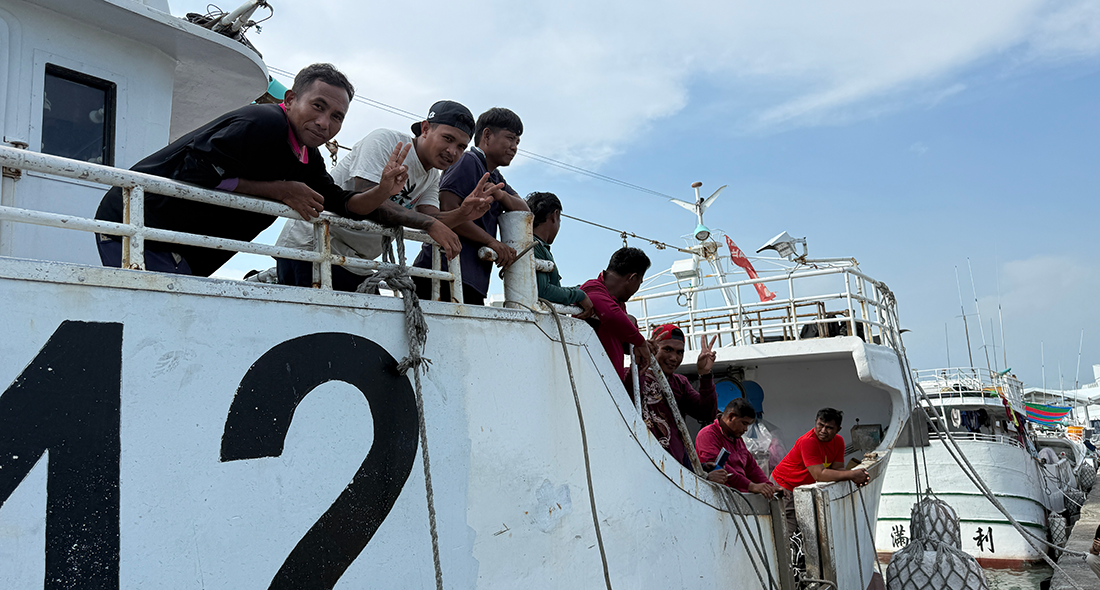 These efforts will also focus on deeper engagement with captains, ensuring a holistic approach to safeguarding rights on board and ensuring all parties understand their rights and their responsibilities.
These efforts will also focus on deeper engagement with captains, ensuring a holistic approach to safeguarding rights on board and ensuring all parties understand their rights and their responsibilities.
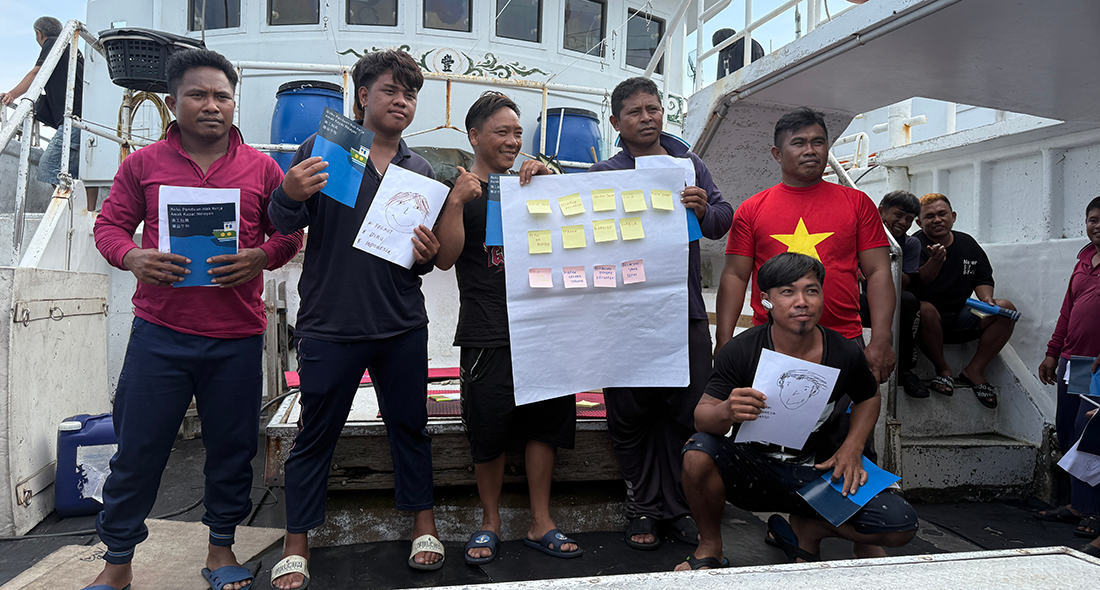 As training hopefully expands to hundreds of vessels and adapts to diverse national contexts, this partnership is not only equipping workers with essential knowledge and skills, but also strengthening trust, transparency, and accountability across the seafood supply chain. What began as a pilot is now evolving into a regional model for how fisheries and worker advocacy organizations can work hand-in-hand to improve both environmental and social outcomes.
As training hopefully expands to hundreds of vessels and adapts to diverse national contexts, this partnership is not only equipping workers with essential knowledge and skills, but also strengthening trust, transparency, and accountability across the seafood supply chain. What began as a pilot is now evolving into a regional model for how fisheries and worker advocacy organizations can work hand-in-hand to improve both environmental and social outcomes.